"Reacting to the tradition of neo-classicism as early as the 1830's, English architects and decorators took a renewed interest in the art of Gothic cathedrals. This movement, called Gothic Revival, shaped the whole Victorian era and was on a scale that had no equivalent in other European countries. In the midst of the industrial boom, the enthusiasm for the Gothic period, seen as an exemplary society in which the arts blossomed in a mystical and fraternal spirit, was set against the effects, considered degrading, of mechanisation.
Augustus Pugin (1812-1852) was the first to rediscover in Gothic art the principle of a close union between art, craftsmanship and technique. His main treatises of architecture and decoration, such as 'Floriated Ornament' (1849), were to influence for a long time the artists of the Arts and Crafts movement. Today, the magnificent decoration of the London Houses of Parliament still testifies to his virtuosity as a decorator and a colourist." [source]
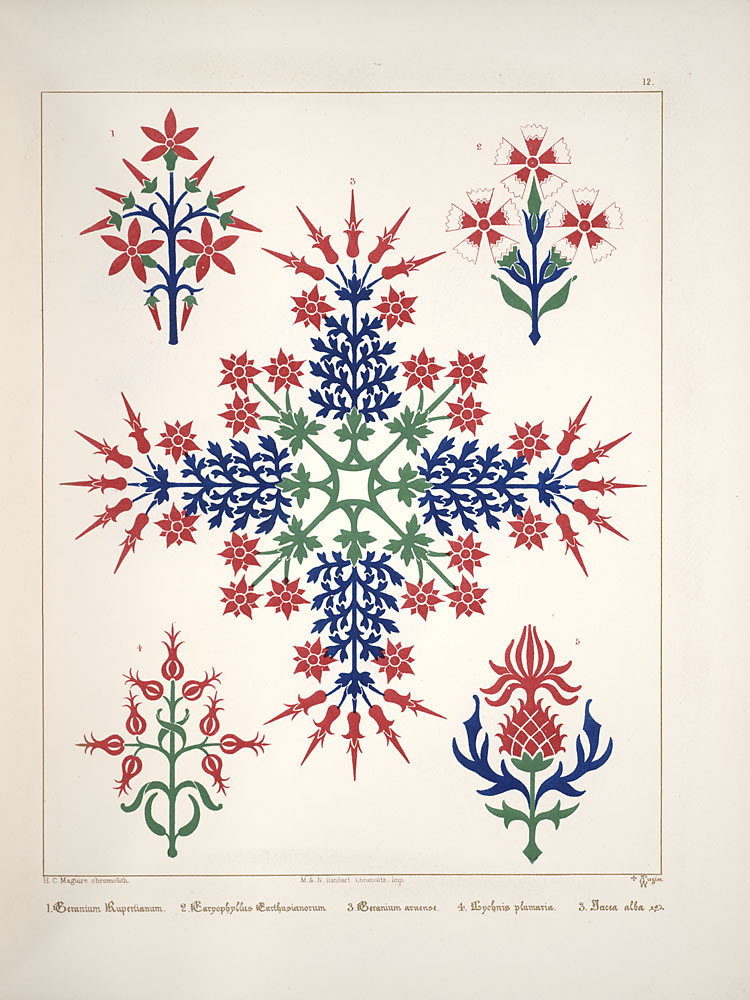
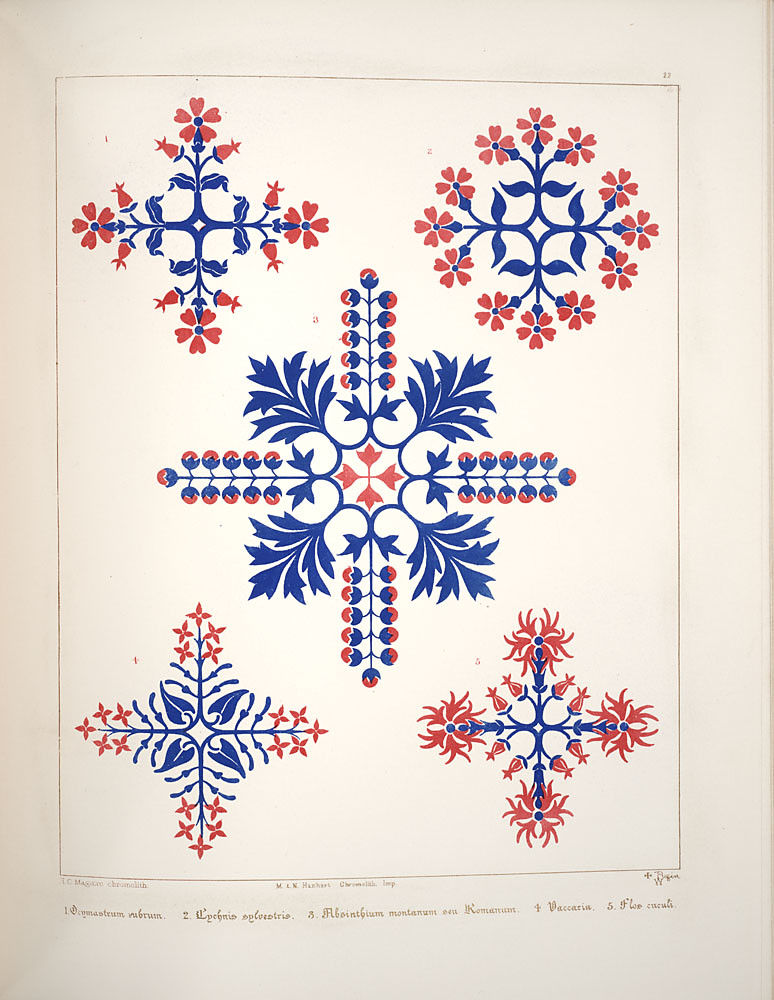
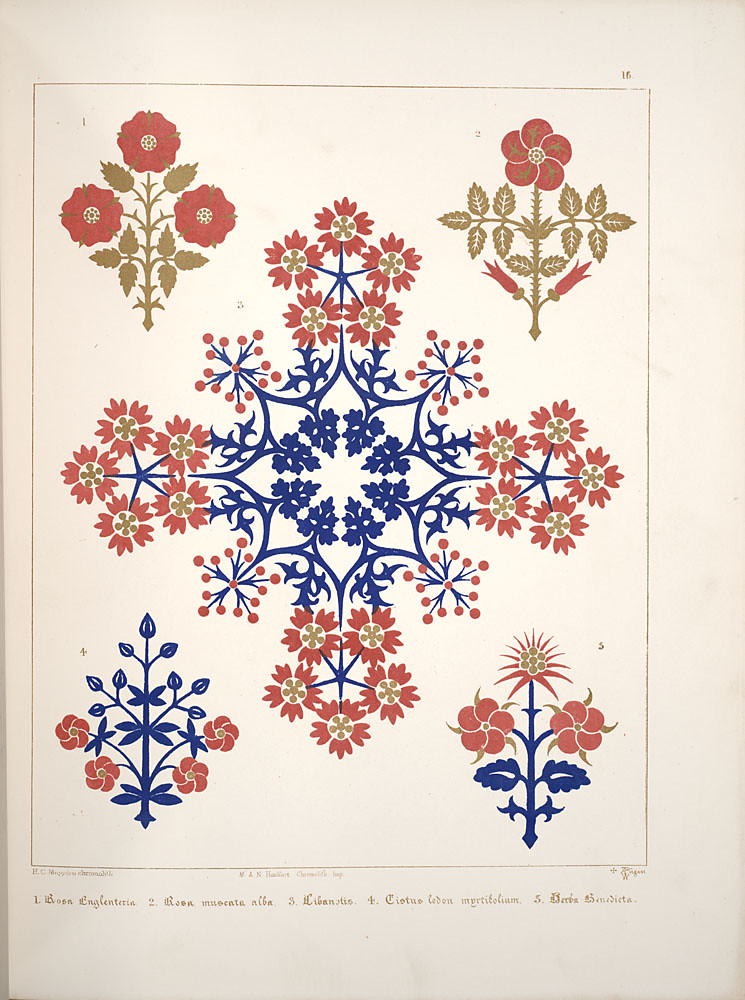
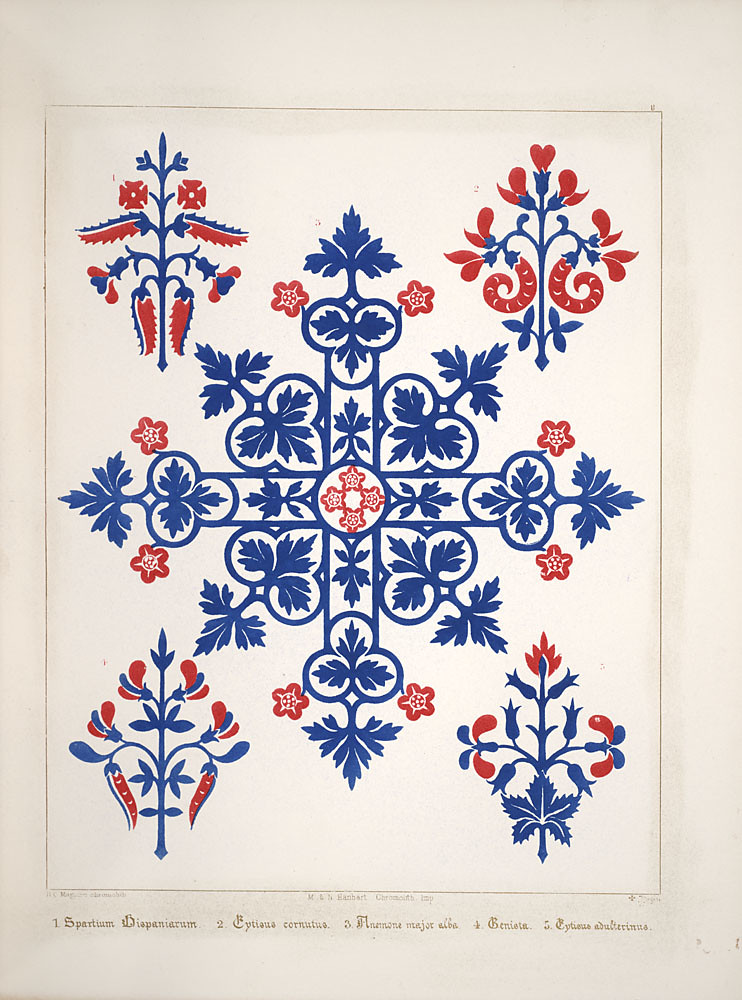

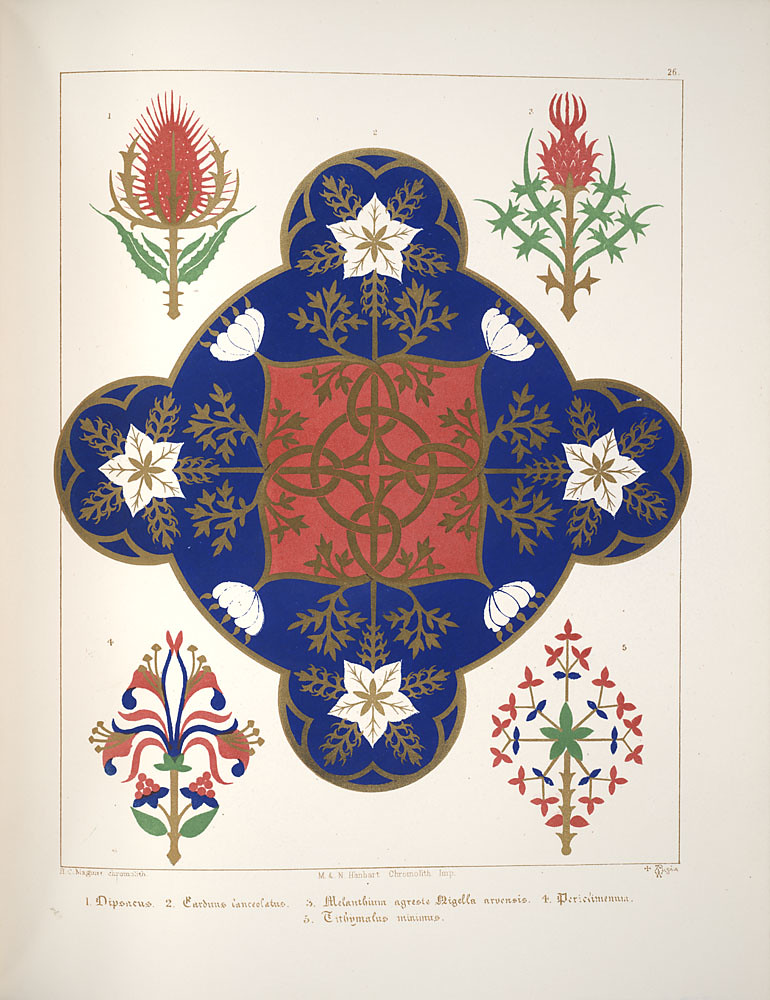
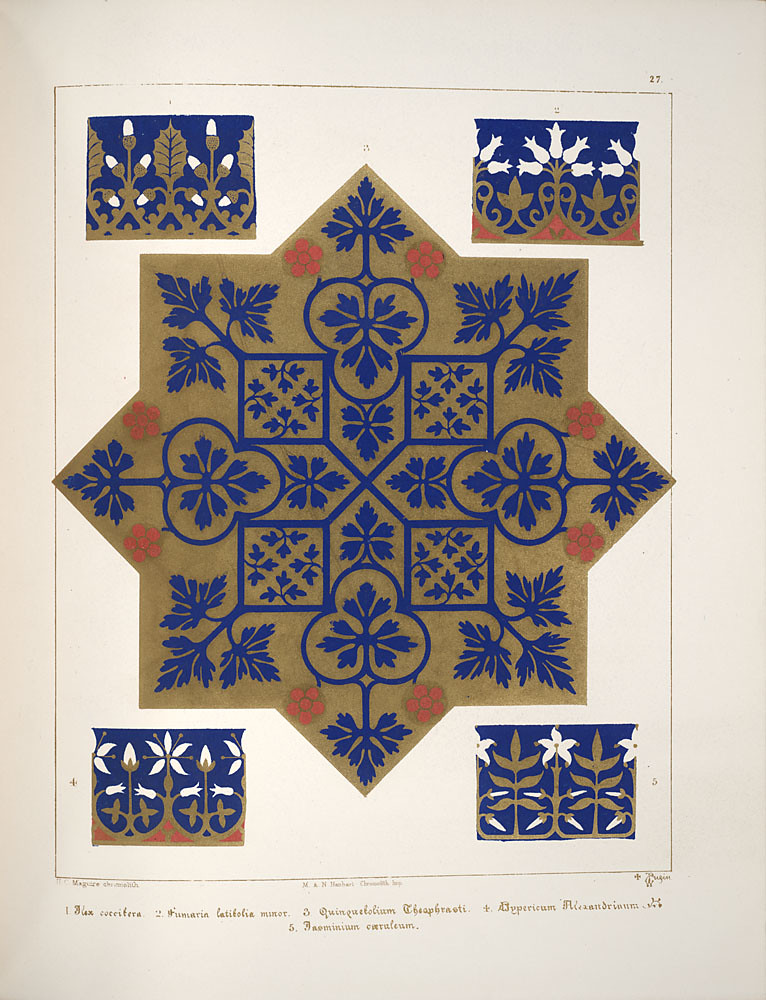
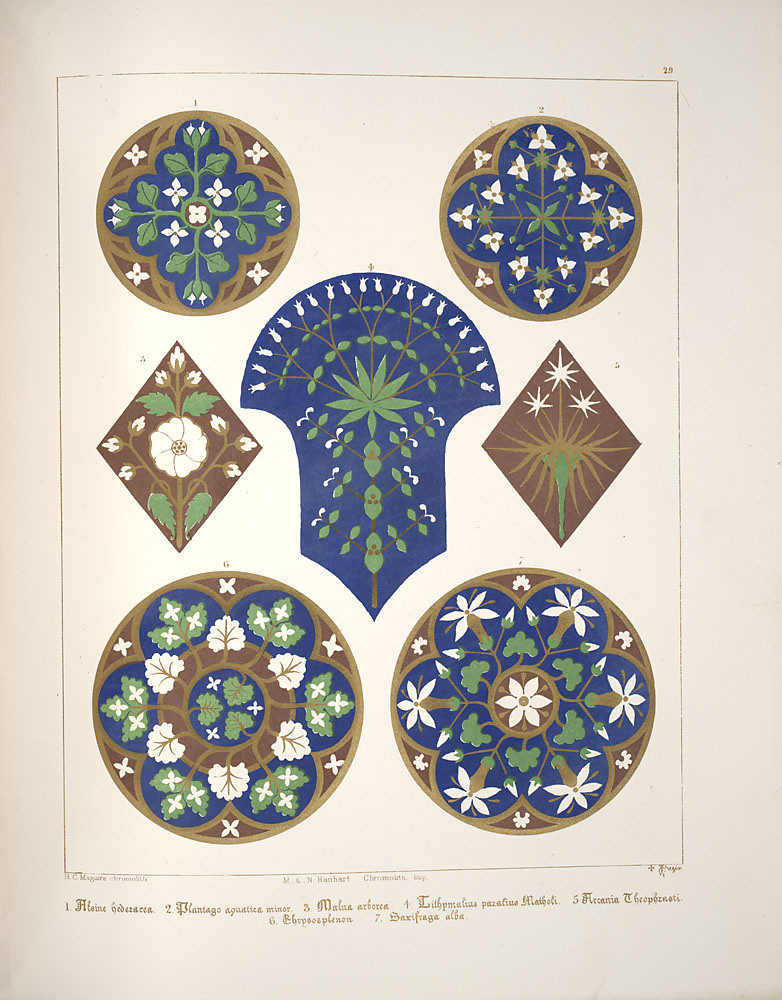
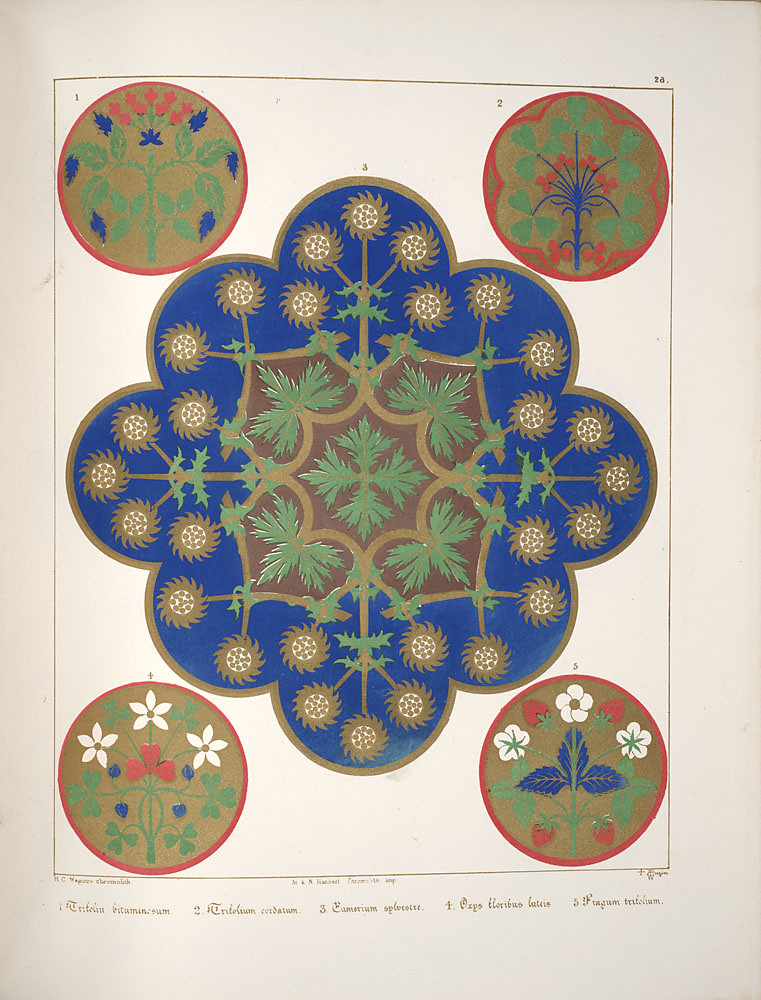
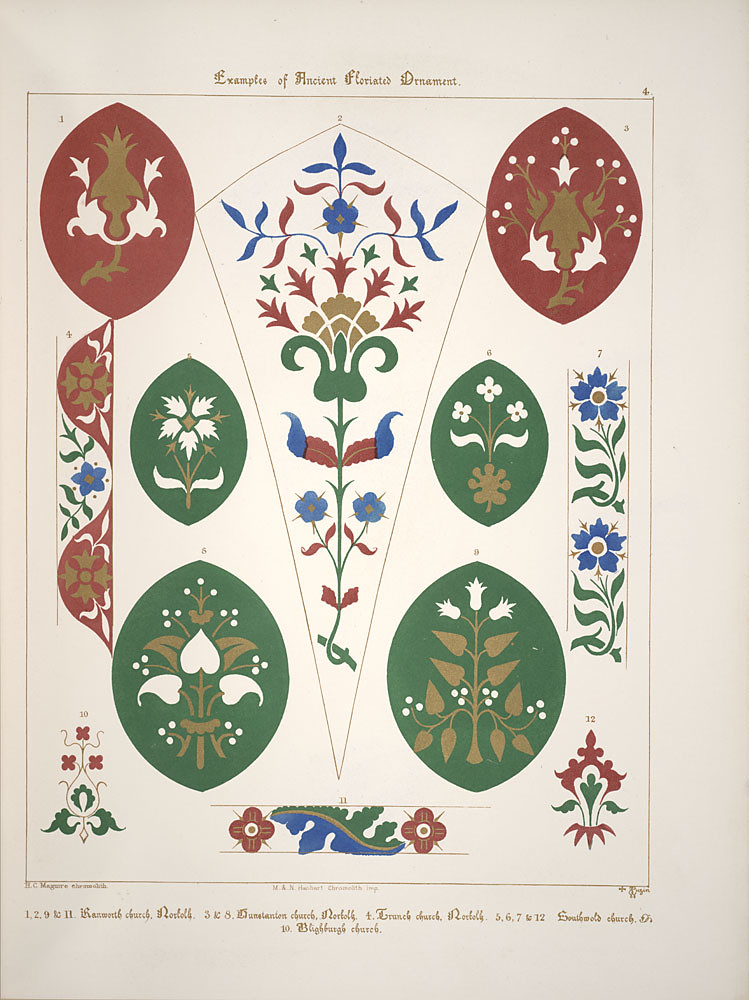
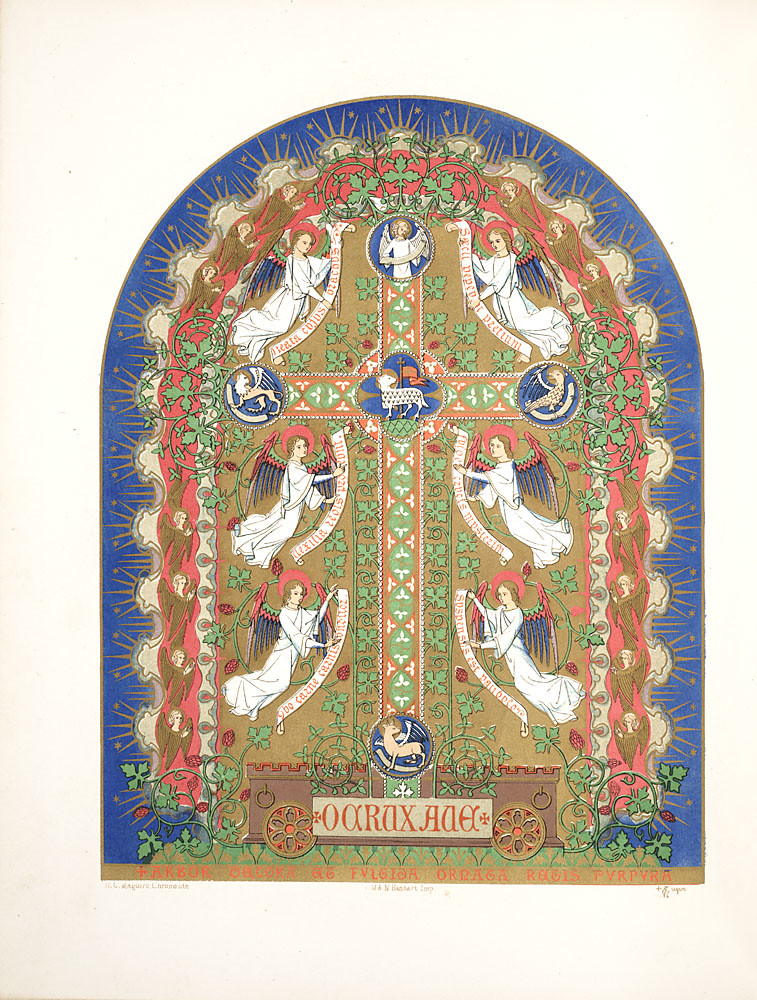
'Floriated Ornament: a series of thirty-one designs' (1849) by Augustus WN Pugin was recently digitised by The Smithsonian Institution. It is hosted within their fabulous Galaxy Image Database [previoiusly] and was discovered via The Smithsonian Libraries blog.
"Pugin's plea in this book was for designers to go directly to nature itself, as medieval designers had done, instead of making use of already conventionalised classical or antique ornament, which architects and designers had used since the period of the Italian Renaissance. He also felt that, to derive the greatest decorative value from natural forms, the structure of plants should be studied and exploited (as he maintained the medieval artists had done), instead of (as contemporary decorative artists were wont to do) painting realistic bunches of fiowers, etc., imitating a three dimensional effect in their decorations of flat objects. On this point, Pugin was in advance of the decorative theories of Owen Jones, Christopher Dresser, and William Morris."
----Elzea et al: 'The Pre-Raphaelite Era, 1848-1914', 1976 [source]
- A number of Pugin's publications have been reissued in the last decade or so.
- Augustus Welby Northmore Pugin at the Dictionay of Art Historians.
- A Passion for Gothic Decoration by Carolyn McDowall (2009).
- The Master and Disciple of Gothic Revival – Pugin and Pearson by Carolyn McDowall (2010)
- Augustus Welby Pugin and the Decorative Arts at the Victorian Web.
- The Pugin Society.
- A truncated copy of 'Floriated Ornament' is available via Googlebooks.
- Gothic Revival and Design at the University of Glasgow.
- Wikipedia: Augustus Welby Northmore Pugin & Gothic Revival Architecture.
- Previously related: The Treasury of Ornament One, Two & Three; Ornamental Decoration in 17th Century France; Ancient Spanish Ballads; Decoration History; Actually there are many more posts on the history of ornament/decorative designs and this reminds me why I need to add 'ornament' to the delicious tags: the best place to cruise in order to find anything on this here BibliOdyssey blog.
These are wonderful, I'm a huge fan of Pugin. He was not only an aesthetic visionary, he had many important ideas on town planning and modern society which still bear listening to today.
ReplyDeleteHis designs, similar to those above, can be collected relatively cheaply today on Minton tiles. Beautiful example here - http://www.britishmuseum.org/explore/highlights/highlight_objects/pe_mla/t/tile_mosaic_designed_by_awn.aspx
I believe I read somewhere that he worked in monk's robes.
ReplyDeleteWasn't his Catholicism at odds with the Gothic Revival as it was interpreted in England?
sorry, I suppose my comments are more like "random thoughts"
I'm lucky in that there's a pugin building fairly near to us - http://www.pugin.com/pugchads.htm, and now having seen this beautiful illustrations I'll have to pay it another visit!
ReplyDeleteI am big fan of Dresser and this style of ornament. I knew it was not unique to him, but I have never come across this publication before. Thank you!
ReplyDeleteLOVE THESE!
ReplyDeleteGreat..i like it..
ReplyDeleteYour Blog is very very nice!!!!Mauri
ReplyDeleteYour blog is simply amazing. Tahank you very much for taking your time to upload all these marvelous images. Saludos.
ReplyDeleteWonderful, I just adore these patterns all of them, this is truly a beautiful feast for the eyes. Thank you for sharing it.
ReplyDeleteI used this design as motif for a tile -- thanks for the inspiration! http://www.flickr.com/photos/alspic/5540955661/
ReplyDeleteSweet!
ReplyDeleteAnd thanks everyone: it must seem like I'm not listening I suppose, but I am. Always. I'm just lazy. Sometimes.